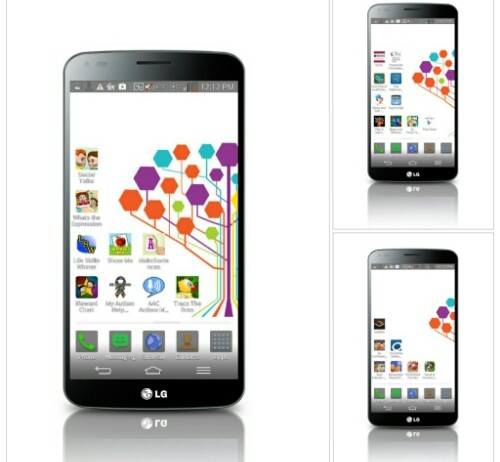Sprint’s Neurodiversity ID pack is a bundle of apps and online resources covering a variety of educational and developmental concerns for families and children with learning disabilities. The 23 Android apps included offer help for those with cognitive and neurodevelopment disabilities, and also includes weblinks to leading organizations focused on disabilities that impact learning, attention, and behavior.
The content included in Sprint’s Neurodiversity ID pack was curated with the help of The National Center for Learning Disabilities, Dyspraxia Foundation USA and QSAC, and includes links to each organizations’ website and online resources.
The apps cover a variety of educational and developmental areas, such as math and reading skills, and provide digital tools and developmental games for children in grades K-12, with additional apps that offer support for parents.
Below is a rundown of every app included with the bundle. Click any title to visit that app’s Google Play Store page, which include download information and pricing.
Parents should note that the Neurodiversity ID pack still requires the purchase of paid apps, through some of the apps included are free.
Apps:
Audible – Amazon’s audiobook service. Users can browse thousands of books, podcasts and other audio-based entertainment.
Be Confident In Who You Are – A fun, illustrated ebook that explores self-confidence and the transition from elementary to middles school.
OverDrive Media Console – This unique service links with schools and libraries to let kids read ebooks, listen to audiobooks, and watch streaming video.
Real Friends vs. the Other Kind – Another “Middle School Confidential” eBook focused on friendships and relationships.
Berenstain Bears in the Dark – A detailed cartoon ebook for younger children with interactive pages and animations.
Toddler Kids – A collection of educational mini-games and puzzles designed for kids and toddlers.
Stacks N Puzzles – A puzzle adventure game where kids learn about everything from museums to fire trucks, schools, buses and more.
First Then Visual Scheduler – This app uses images rather than words to describe common household activities, helping kids see exactly what they need to do.
Show and Tell – Use your phone or tablet to create stories and recap memories using text, images and video.
TapToTalk – An alternative and augmentative communication (AAC) app that lets nonverbal users express themselves. Tap pictures to make the app speak!
Play & Learn Languages – A flashcard-style app that makes learning a new language fun for kids.
Bugs & Buttons – This colorful app packs in lots of math fun. Check out our review of the sequel, Bugs & Buttons 2.
Dr. Panda’s Supermarket – A bright, cheerful game that has kids learning how to run their very own supermarket.
Social Talks – Kids learn social cues and conversation skills through animations and questions.
What’s the Expression – An app about learning facial expressions and the emotions behind them.
Life Skill Winner – This app teaches social and life skills to kids, breaking down how to complete each task and awarding points which kids can redeem for rewards.
Show Me – An app designed for children with developmental disabilities, this app speaks a word and asks users to identify the corresponding image and text.
Make Sentences – Once children develop a decent vocabulary, the next step is sentence structure. This app shows kids how to build simple sentences from a collection of words.
iReward Chart – An app for setting behavior goals and rewarding kids who stick to them. See our iReward Chart review for more information.
My Autism Help – This app lets users easily connect with the My Autism Help community, giving them direct access to the organization’s forums.
AAC Autism myVoiceCommunicator – Another alternative and augmentative communication (AAC) app designed to facilitate non-verbal communication for children, toddlers, and adults.
Trace the Dots – A “connect-the-dots” app that helps children develop fine-motor skills.
Online Resources:
QSAC – A nonprofit that aims to help children and adults with autism gain greater independence, realize their potential, and contributing to their communities.
NCLD – The National Center for Learning Disabilities features a vast amount of information on learning disabilities, and offers parents help identifying learning challenges and taking the next steps towards addressing them.
Dyspraxia Foundation – An inspiring site filled with dyspraxia resources and story’s about children and adults overcoming the challenges of the learning disability.




